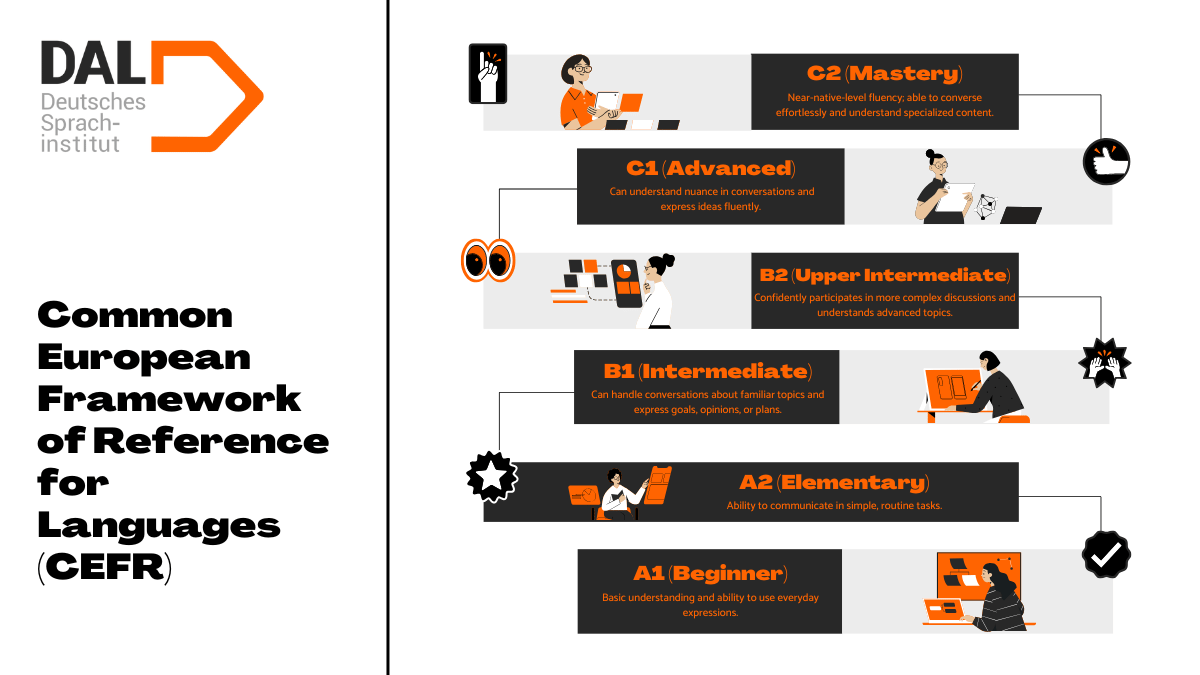Are you an expat in Germany looking to improve your German skills? Learning the language isn’t just about communication. It’s about building a better life with expanded career prospects, meaningful connections, and the confidence to thrive in your daily routine. Whether you’re aiming to climb the professional ladder or simply want to feel more at home, mastering German can open countless doors for you.
Here’s your complete guide to learning German in Germany, including the best cities to study, top language schools, online options, cost comparisons, and practical tips to get started.
Why Learn German as an Expat in Germany?
1. Career Growth
Speaking German gives you a competitive edge in Germany’s diverse job market. Careers in healthcare, education, engineering, and customer service often require intermediate to advanced German skills (levels B1-B2). Fluency also empowers you to negotiate better salaries or transition into higher-level roles.
2. Deeper Cultural Integration
Germany is more than Oktoberfest and bratwurst. Fluency in German helps you connect with locals, from small talk with neighbors to building friendships. The ability to speak the local language also enriches your experience of German traditions and events.
3. Everyday Ease
Administrative tasks like registering at the Bürgeramt, opening a bank account, or navigating legal paperwork are easier when you understand the language. Even small wins, like confidently ordering at a café, boost your sense of belonging.
4. Immersion Advantage
Living in Germany gives you the perfect environment to practice daily. You’re surrounded by native speakers, cultural contexts, and real-life applications, which accelerate your language learning compared to studying elsewhere.
If cost or time constraints make traditional classes impractical, don’t worry—we’ll show you more flexible and affordable options, like our tailored online courses.
Top Cities for Learning German (and the Best Courses)
Where you study can significantly impact your language-learning experience. Here’s a city-by-city breakdown, complete with notable language schools and expat-friendly programs.
1. Berlin
Berlin is a melting pot of cultures and a hub for creative and professional expats. Its dynamic language schools and networking opportunities make it an excellent place to learn German.
Finding the Best German Language Course in Berlin
- Sprachenatelier Berlin: Offers small, intensive classes focused on cultural immersion alongside language skills. Perfect for expats eager to integrate through language and culture.
- Goethe-Institut Berlin: Known globally, this institute provides structured programs suited for all proficiency levels.
- IES Abroad Berlin: A great option for learners seeking a combination of academic coursework and cultural activities.
Why Study in Berlin?
- Access to cultural landmarks like the Brandenburg Gate.
- A vibrant nightlife and expat community to practice German socially.
- Plenty of job opportunities in tech, startup, and creative sectors.
2. Munich
The Bavarian capital offers a traditional setting for learning German, with its focus on the widely understood “Hochdeutsch” (standard German).
Finding the Best German Language Course in Munich
- Goethe-Institut Munich: Provides intensive courses with fast progress for urgent needs.
- DeutschAkademie: Offers affordable group lessons located right in Munich’s city center.
Why Study in Munich?
- Famous for cultural events like Oktoberfest, where you can practice conversational German.
- A safe, clean city ideal for work/life balance.
- Proximity to scenic attractions like the Bavarian Alps.
3. Frankfurt
Frankfurt, Germany’s financial powerhouse, is ideal for professional expats aiming to learn business-specific German.
Finding the Best German Language Course in Frankfurt
- Goethe-Institut Frankfurt: Specializes in business-focused German courses.
- Did Deutsch-Institut: Highly praised for career-related language programs.
Why Study in Frankfurt?
- A cosmopolitan city with a blend of international residents.
- Opportunities to network in Germany’s banking and finance sectors.
4. Hamburg
If you prefer a laid-back setting, Hamburg’s mix of maritime charm and culture will inspire you.
Finding the Best German Language Course in Hamburg
- Tandem Hamburg: Provides a welcoming, community-driven approach to language learning.
- Colón Language Center: Known for flexible schedules and a wide choice of class formats.
Why Study in Hamburg?
- Home to stunning attractions like the Elbphilharmonie.
- A highly creative, open-minded vibe among locals.
5. Cologne
Cologne’s vibrant student scene and relaxed atmosphere create an inviting environment for language learners.
Finding the Best German Language Course in Cologne
- Sprachschule Aktiv: Focuses on conversation-driven classes with interactive activities.
Why Study in Cologne?
- More budget-friendly living compared to cities like Munich.
- Numerous cultural festivals offering informal opportunities to use German.
The Affordability of Online German Courses
While in-person courses are a great choice, their cost and rigid schedules may not work for everyone. That’s where online German courses like ours come into play.
Comparison Table of Learning Options
| Option | Cost Range | Flexibility | Accessibility |
|---|---|---|---|
| Online Courses | €10–€50/month | Fully flexible | Accessible anywhere in Germany |
| Intensive Classes | €1,000–€2,500/4–8 weeks | Fixed daily schedule | Limited to onsite locations |
| Small Local Institutes | €500–€1,000/4–8 weeks | Semi-flexible | City-specific |
Why Choose Our Online Course?
- Affordable: Pay less than half of what in-person courses cost.
- Convenient: Learn at your own pace, anytime, anywhere.
- Interactive: Attend live sessions with experienced native instructors.
- Practical: Tailored to real-life scenarios expats face daily.
Complementary Online Platforms
- Lingoda: Offers small group classes for focused learning and interaction.
- Rocket Languages: Great for self-paced learners focused on conversational skills.
- FluentU: Engages learners with real-world videos like movie clips and news.
Tips for Affordable Learning in Germany
- Check for Government Subsidies: Programs like integration courses funded by the Federal Employment Agency can be a cost-effective option for eligible expats.
- Seek Cultural Meetups: Free or low-cost language exchange events are often held in cities like Berlin and Munich.
- Use Free Resources: Apps like Duolingo and Memrise, along with libraries for language books, offer supplemental learning tools.
Get Started Today!
Mastering German is more than a goal; it’s your gateway to better job opportunities, stronger connections, and overall success in Germany. With options tailored for every budget, including our affordable online courses, now’s the perfect time to start.
Join our online course today and transform your life in Germany. Sign up now and unlock your full potential one word at a time!







